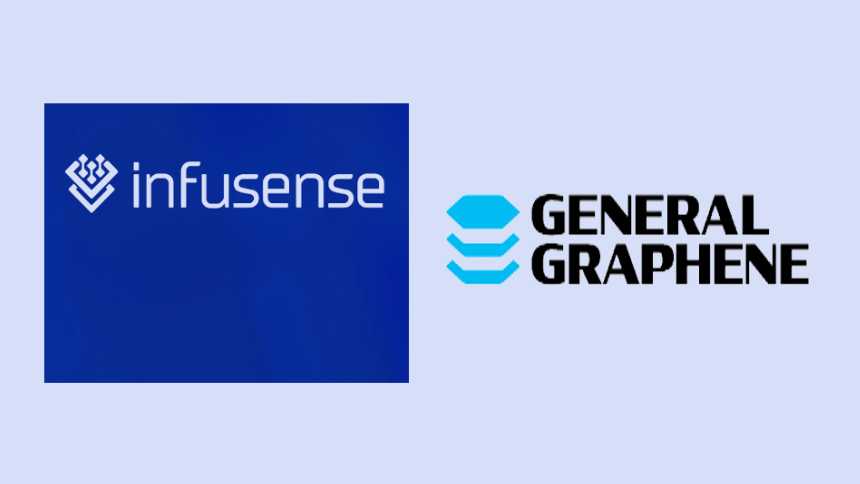
Connection makes a real difference for two Tennessee start-ups
Thanks to Cameron Snow of Life Science Tennessee, Infusense and General Graphene are collaborating to bring a product to market using the latter’s materials paired with Infusense's proprietary membrane to detect drugs like fentanyl.
One of my favorite phrases is “out of sight, out of mind,” and it is so appropriate in terms of a collaboration that most likely would not have occurred if representatives from two Tennessee companies had not attended the 2023 BIO International Convention in Boston.
The two individuals are Eric Kriegstein, Chief Executive Officer of Nashville-based Infusense, and Siddhant Bangur, Director of Business Development for Knoxville’s General Graphene Corporation. Through separate conversations with Cameron Snow, Events and Membership Coordinator with Life Science Tennessee, and the connection that he made during the event, the two companies now have a budding business relationship.
One of the key applications for Infusense’s platform is a method to quickly, and accurately, measure lipophilic drugs of interest such as fentanyl. “We can detect sub-therapeutic levels of fentanyl using General Graphene’s materials paired with our proprietary membrane,” says Kriegstein. “Our technology has the potential to improve diagnosis and treatment for millions of Americans affected by the opioid epidemic.”
Infusense expects to have obtained pre-clinical and clinical data for drug toxicity testing for fentanyl and other drugs by the end of 2024.
The company was founded in 2009 by Dr. Edward Chaum, then a Professor at the University of Tennessee Health Science Center and now at Vanderbilt University Medical Center, with support from Dr. Erno Lindner, then a Professor of Biomedical Engineering at the University of Memphis. Their early focus was on a technology funded under a Department of Defense grant to monitor anesthesia, specifically propofol, as it was being dispensed on the battlefield. While it is an anesthetic that works quickly and with few side effects, it can also be lethal, meaning that those administering it must closely monitor patient doses.
Fast forward more than a decade, and the early stage biomedical device company is building a rapid, point-of-care diagnostic platform for the detection and quantification of lipophilic drugs using electrochemistry. In late June of 2023, Infusense, which has licensed intellectual property (IP) from the University of Tennessee Research Foundation, was granted a $1 million Phase II Small Business Innovation Research (SBIR) grant from the National Science Foundation (NSF). The NSF backed research, led by Infusense Director of Engineering Dr. Marcin Guzinski, aims to accelerate the development and Food and Drug Administration approval of HemaSenseTM, a platform designed to rapidly detect and measure fentanyl levels in presumed opioid overdose patients within minutes using just a single drop of blood.
“To successfully bring our technology to patients in need, we’ve spent a lot of time and effort looking for disposable sensors that achieve the performance potential of our IP,” Kriegstein said. “We wanted an electrode that used carbon, and we assessed more than 20 designs without finding an ideal option. That led us to start looking at new materials like graphene.”
The challenge was not just finding the right material for the sensor but finding the right company to help with manufacturing. Kriegstein mentioned the challenge facing Infusense to Snow who connected him within a day to Bangur who was also attending the BIO Convention.
“General Graphene is world-class organization in our backyard,” Kriegstein says. “I did not know what to expect going into our first call,” Kriegstein admitted, but he quickly gained a much different view. “I was really impressed by Siddhant Bangur, Greg Erickson and the entire General Graphene team. They brought their deep engineering expertise and scientific bench to support developing solutions we needed. I am very grateful Cameron introduced us.”
General Graphene’s exclusive focus is on industrial-scale Chemical Vapor Deposition (CVD) graphene and carbon materials manufacturing. Since its founding in 2014, the company has moved through critical milestones to enhance its graphene and carbon manufacturing capacity and capabilities, developing its first-generation proof-of-concept machine that debuted in 2017, a prototype machine the next year, a pilot production line in 2021, an inline polymer coating system in 2022, and its roll-to-roll graphene transfer process in 2023.
Today, Bangur adds that General Graphene’s current focus is on developing and growing its customer base in the life sciences sector.
“Within life sciences, we have identified molecular diagnostics and regenerative medicine as lucrative high-growth markets where our graphene and carbon materials address unmet needs and successfully enable novel developments,” Bangur said. “Using our proprietary industrial-scale CVD manufacturing technology, we aim to help Infusense and our other life science customers accelerate the commercialization of their graphene and carbon-based products.”
Like what you've read?
Forward to a friend!

